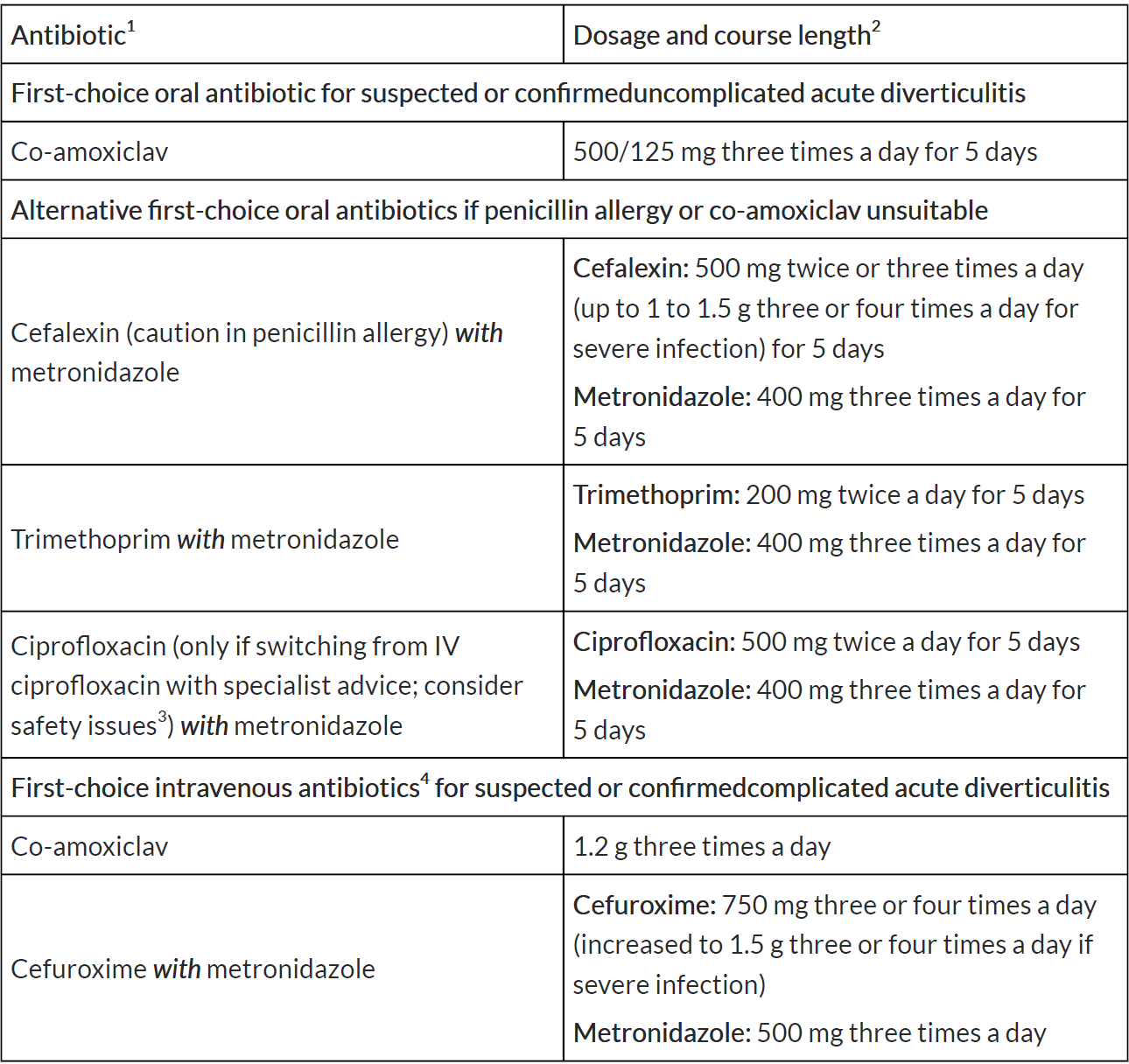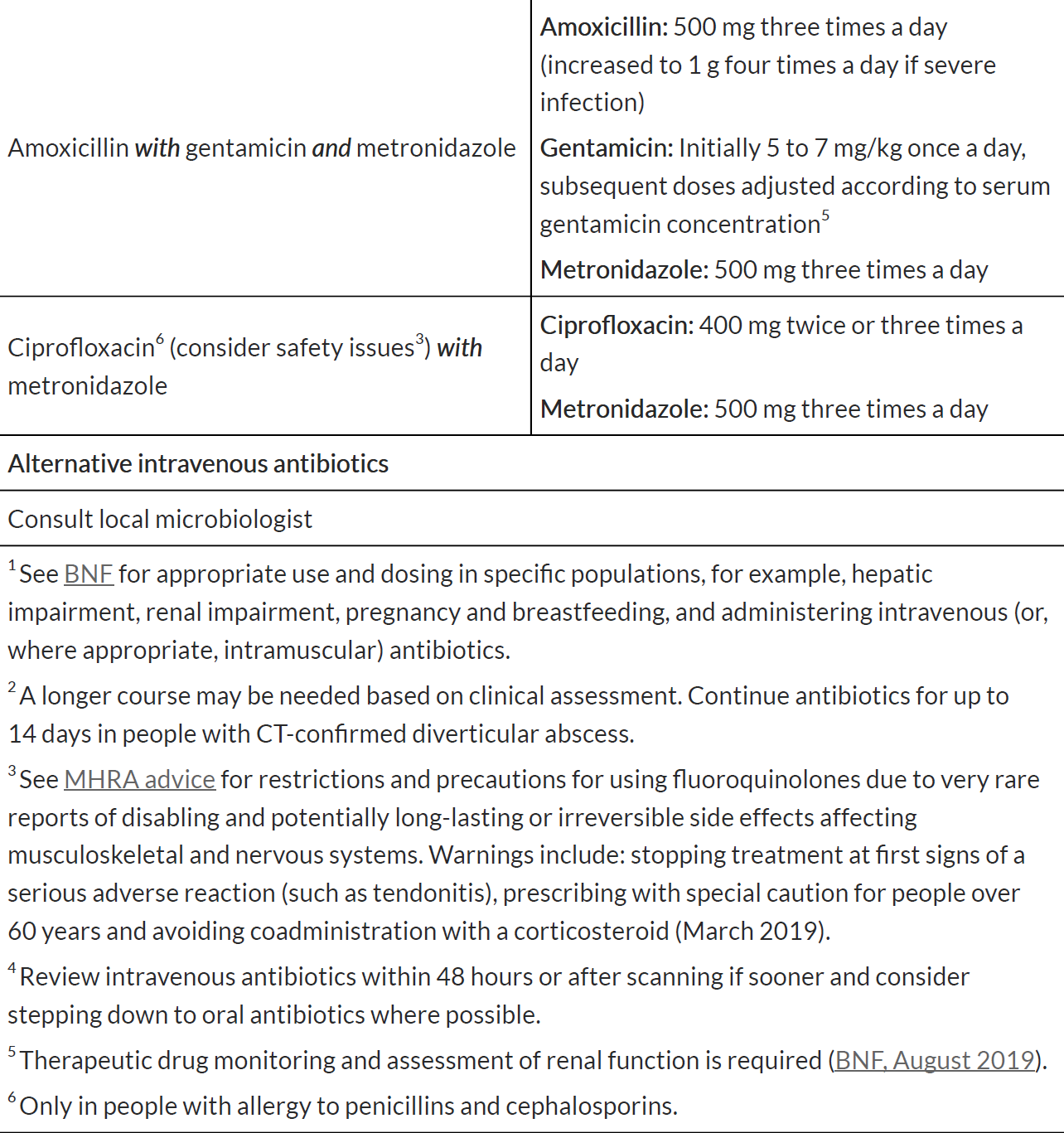Non surgical management (including suggested antibiotic regimes) of acute diverticulitis
Non-surgical management of acute diverticulitis
For people with acute diverticulitis who are systemically well:
- consider a no antibiotic prescribing strategy
- offer simple analgesia, for example paracetamol
- advise the person to re-present if symptoms persist or worsen
Offer an antibiotic prescribing strategy if the person with acute diverticulitis is systemically unwell, is immunosuppressed or has significant comorbidity.
Offer oral antibiotics if the person with acute diverticulitis is systemically unwell but does not meet the criteria for referral for suspected complicated acute
diverticulitis.
Offer intravenous antibiotics to people admitted to secondary care with suspected complicated acute diverticulitis
- complicated acute diverticulitis is defined as the presence of complications associated with inflamed or infected diverticula. These complications may include abscess, fistula, stricture perforation and sepsis
Review intravenous antibiotics within 48 hours or after scanning if sooner and consider stepping down to oral antibiotics where possible.
If the person has CT-confirmed uncomplicated acute diverticulitis, review the need for antibiotics and discharge them depending on any co-existing medical conditions.
When prescribing an antibiotic for suspected or confirmed acute diverticulitis, follow the advice in table below.
Table - Antibiotics for adults aged 18 years and over with suspected or confifirmed acute diverticulitis


Emergency management of complicated acute diverticulitis
When prescribing an antibiotic for suspected or confirmed complicated acute diverticulitis, follow the advice in table above.
Key points (2):
- acute diverticulitis and systemically well:
- consider no antibiotics, offer simple analgesia (for example paracetamol), advise to re-present if symptoms persist or worsen
- acute diverticulitis and systemically unwell, immunosuppressed or significant comorbidity: offer an antibiotic
- give oral antibiotics if person not referred to hospital for suspected complicated acute diverticulitis
- give IV antibiotics if admitted to hospital with suspected or confirmed complicated acute diverticulitis (including diverticular abscess)
- if CT-confirmed uncomplicated acute diverticulitis, review the need for antibiotics
- * a longer course than 5 days may be needed based on clinical assessment
Reference:
Create an account to add page annotations
Annotations allow you to add information to this page that would be handy to have on hand during a consultation. E.g. a website or number. This information will always show when you visit this page.